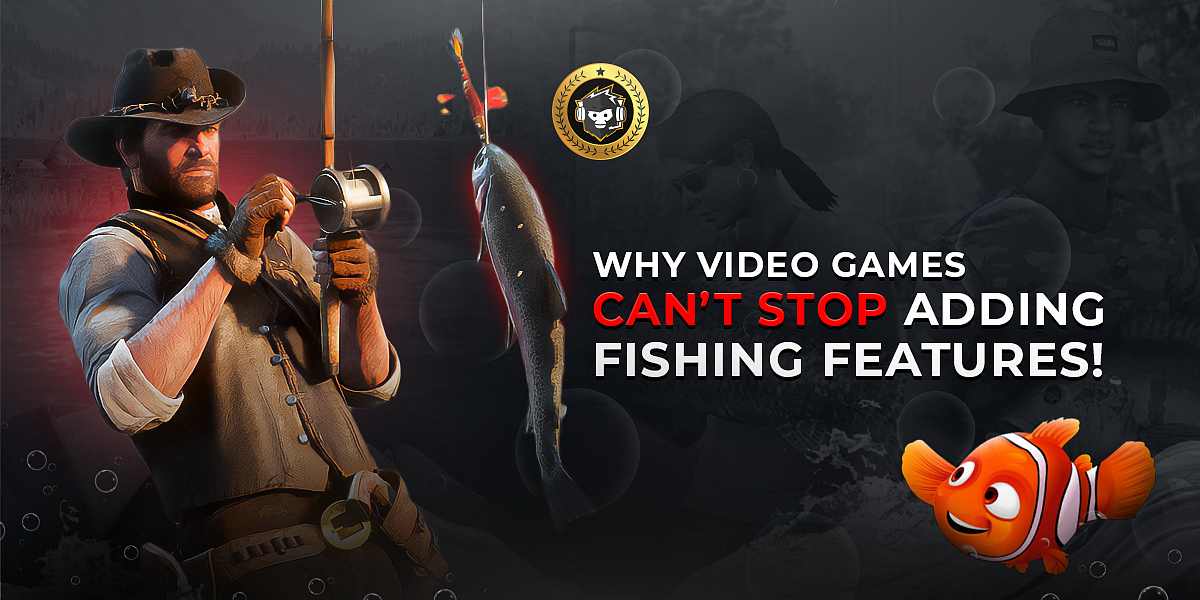
Cover-Credits:
AFK Gaming
Popular rogue-like Hades built its identity around pushing players to their limits. You scour the depths of the underworld, clearing one room to another mowing down enemies as you adjust your playstyle based on what the game throws at you. But in its sequel, just when you’re in the heat of the moment, ready to take on the next room full of underworld denizens, you hear a “ding” sound as you enter. It’s a fishing spot, and before you know it, you’ve fallen for it—hook, line, and sinker. What started as a mission of carnage turns into a quiet, unexpected pause. It's a fishing minigame.
Similar titles like Far Cry 6, Final Fantasy XV, and Fire Emblem: Three Houses ask you to hit pause on your momentum and indulge in a quick fishing diversion, regardless of the genre. Even in dating sims like Dream Daddy, you’ll find yourself casting a line, proving that no game is safe from the allure of a good fishing minigame.
This seemingly odd juxtaposition raises an important question: why is fishing, a calm and reflective activity, woven into games built on adrenaline and chaos? What was once a niche mechanic in classic RPGs and life simulation games has now found its way into titles defined by action, adventure, and exploration. Games like The Legend of Zelda or Animal Crossing always had room for such serene moments, but how did fishing become so popular in today’s action-packed environments? Could it be just a simple, fun distraction from the intensity, or does it serve a deeper, more purposeful role within these worlds?
A Moment of Calm: The Role of Downtime in Game Design
When fishing was first introduced to gaming, there wasn’t much you could do in terms of programming the mechanics onto games, especially in game cartridges where storage space was very limited. Back in 1984, Sea Route to India found a way by having players wait in their little boat until a fish swam beneath them. Once the moment was right, you’d press an action button and, if timed perfectly, reel in your catch. It wasn’t the most dynamic or satisfying gameplay, but for its time—and on the Commodore 64—it was a novel concept. The original “bait-and-wait,” if you will.
Fast forward to today, and fishing minigames have evolved into something far more engaging. Modern games like Final Fantasy XV and Stardew Valley have refined fishing into a skill-based activity, complete with varied mechanics, tension-based systems, and rewards that tie directly into the game’s larger progression. What was once a simple "wait and press" activity has transformed into a fully-fledged experience, often with dedicated fishing quests, upgrades, and even rare fish that challenge the player’s skill and patience.
Beyond just a fun distraction, fishing minigames offer something crucial to the overall gameplay experience: a much-needed break from the intensity of main objectives. In action-heavy titles, where players are constantly moving from one mission to the next, the threat of burnout is real. By design, these games push players to remain in a state of high alert, whether it’s through combat, exploration, or puzzle-solving. Fishing, on the other hand, provides a moment of escape—an opportunity to step back, relax, and disengage from the pressure of main tasks without completely leaving the game world.
This pause offers more than just relaxation; it invites players to appreciate the world around them. Whether it’s fishing by the coast of Yara in Far Cry 6 or casting a line in the shimmering lakes of The Legend of Zelda: Breath of the Wild, these minigames create a meditative space within the chaos. It’s a time to take in the sights and sounds, reflecting on the beauty of the game’s environment while engaging in a low-stakes activity. And yet, despite the calm, there’s still a sense of purpose—fishing isn't idle wandering. There are rewards to be earned, whether it's rare items, crafting materials, or currency, making the downtime both productive and enjoyable.
In many ways, fishing minigames serve as a kind of "reset button" for players. After spending hours completing quests, leveling up, or fighting tough enemies, the option to briefly ignore your responsibilities in the game and just go fishing feels like a gentle nudge to slow down and breathe. It’s a subtle but effective way for developers to balance pacing, allowing players to recharge before diving back into the action. Or is it?


